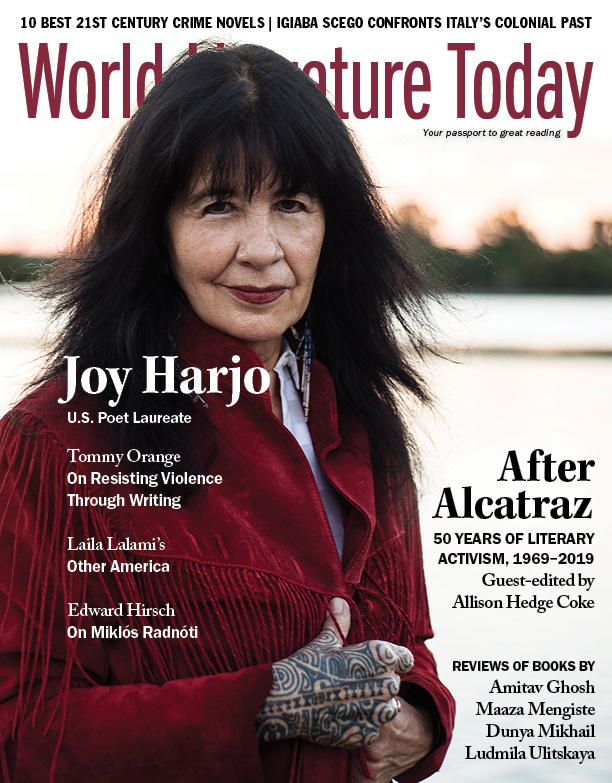Translating Women’s Stories out of Oblivion

IN HIS WORK on color symbolism in Toni Morrison’s Beloved, Florian Bast describes one of the typical reactions to trauma in the novel as “a repetition compulsion” based on the perpetual troping of color, particularly red. Bast calls this the “troping of trauma”—a continual return to a traumatic event in order to become habituated and, to a limited extent, healed. A motif in Igiaba Scego’s 2008 novel Beyond Babylon (published in English this year by Two Lines Press) is protagonist Zuhra’s inability to perceive the color red following years of sexual abuse by a janitor at her elementary boarding school. The novel begins with Zuhra, an Afro-Italian, walking through Rome in an attempt to rediscover colors. Her pursuit of an imaginary red-headed “pilgrim” is also an attempt to reclaim her womanhood. This includes not only the ability to fill the emptiness where her “stolen” vagina is with love but also the capacity to see her vital fluids with clarity, specifically her menstrual blood.
The red of Zuhra’s period blood is the foundation of a story larger than her own, a constellation of women’s stories that stretch backward and forward in time, expanding through space. The troping of red in Beyond Babylon (like the pink paint deployed by the Italian feminists of Not One Less, a transnational movement founded in Argentina that protests violence against women) marks the interwoven, convergent tales of women beyond the spatial and temporal logic of nations. In Scego’s work, “trauma and the unknowable emerge together,” writes Bast, and the building of combative memory, which spurns forgetfulness and historical oblivion, is fully realized. Scego warns that protracted performances of normality in the wake of individual and collective trauma inevitably disfigure the soul.
Beyond Babylon’s leaps in time and location—from colonial Somalia and 1970s Argentina to an Arabic-language school in contemporary Tunis—mimic Scego’s travels as a nomadic author-translator. She moves between languages, eras, and nations, recovering the stories of black and mixed-race women from scholarly quietude. Despite her mobility, or more likely because of it, the translator-nomad is never alone. Scego’s subjects are the daughters of history, who inherit every mother’s past.
A nation’s silence on its own atrocities disappears something that Scego attempts to salvage with speech. To make something disappear (desaparecer) is to admit a reality distinct from the simple bifurcation of here or there, within or without. Disappearance lies at the crossroads of translation. The memories of desaparecidos (those violently vanished by the state in Argentina but also in Italy and elsewhere) are the source of so much grief precisely because the missing persons are not fully inscribed within memory’s domain. They exist in an indefinite state, at least until confessional testimony or DNA evidence reveals their identities, if ever.
In Argentina, a number of former clandestine detention centers have been turned into memory museums, while other “micromemory” projects were developed during the trials of military officials associated with Jorge Videla’s dictatorship. Memory museums respond to cultures of impunity and forgetfulness. Beyond Babylon, like other memory projects, reflects a “reforging of social bonds [and] an incorporation of future generations into sociopolitical life” (Bast).
Scego’s essay in this issue shows us that memory projects are not inherently progressive. Material representations such as monuments, memorials, and novels are not neutral objects but the “expressions of political memory agendas.” Scego is less interested in working through pain than she is in extending, repeating, and representing its diverse expressions. Her writings are disquisitions on the nature of social memory in Italy and elsewhere, her enduring subject the “conflicting re-membrances, conflicting re-constructions of narrative wholes out of fragmentary traumatic memories” (Bast).
Read Igiaba Scego's Puterbaugh essay, “Not One Less,” (translated by Aaron Robertson) from this same issue.









